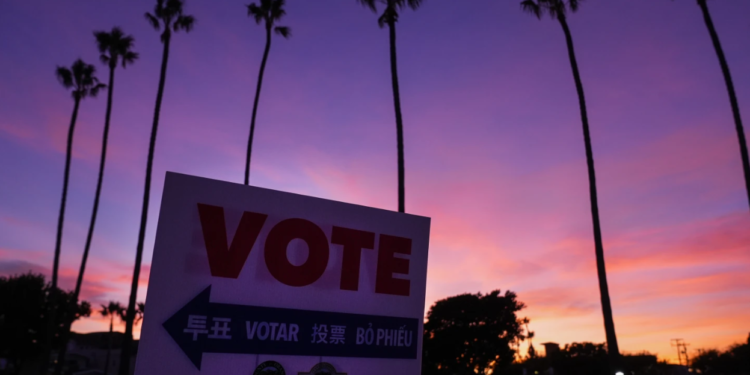Nov 15, 2024 Story by: Editor
California voters have turned down a measure from the November ballot that sought to amend the state constitution to ban forced prison labor. Although the Constitution currently prohibits involuntary servitude, it includes an exception for penal labor as a punishment for crime.
This exception has been criticized by criminal justice advocates, who argue that prisoners performing tasks like firefighting, cleaning, and landscaping are often paid less than $1 per hour. The proposed Proposition 6 was part of a broader reparations initiative introduced this year, aiming to address historical discrimination against Black Californians.
In September, Democratic Governor Gavin Newsom signed legislation within the reparations package that issued a formal apology for the state’s history of racism against African Americans. However, other efforts stalled. State lawmakers blocked a bill to create a reparations agency, and Governor Newsom vetoed a proposal intended to help Black families reclaim land unjustly taken through eminent domain.
Jamilia Land, co-founder of the Abolish Slavery National Network and an advocate for Proposition 6, emphasized its significance in addressing the remnants of slavery embedded in-laws. “While the voters of California did not pass Proposition 6 this time, we have made significant progress,” Land said in a statement. “We are proud of the movement we have built, and we will not rest until we see this issue resolved once and for all.”
George Eyles, a retired teacher in Brea, opposed the measure, finding it confusing since slavery was abolished in the U.S. in the 19th century. He also expressed concerns about the financial implications, as prison labor helps offset operational costs. “I really couldn’t get any in-depth information about… the thinking behind putting that whole Prop 6 forward, so that made me leery of it,” Eyles explained. “If I really can’t understand something, then I’m usually going to shake my head, ‘No.’”
In recent years, states like Colorado, Tennessee, Alabama, and Vermont have eliminated forced labor exemptions from their constitutions. Nevada joined them this week by passing its own measure. Colorado led the way in 2018 but continues to face challenges; incarcerated individuals filed a lawsuit in 2022 alleging they were still coerced into labor despite the constitutional change.
Unlike other measures, Proposition 6’s language avoided the term “slavery,” as California had already removed an explicit slavery exception in the 1970s. However, the exception for involuntary servitude as punishment for crime remains. The U.S. Constitution’s 13th Amendment similarly bans slavery and involuntary servitude, with the same exception.
Campaign spending for Proposition 6 was minimal, amounting to $1.9 million, according to the California Secretary of State. Notably, there was no organized opposition to the measure. Source: AP News

















